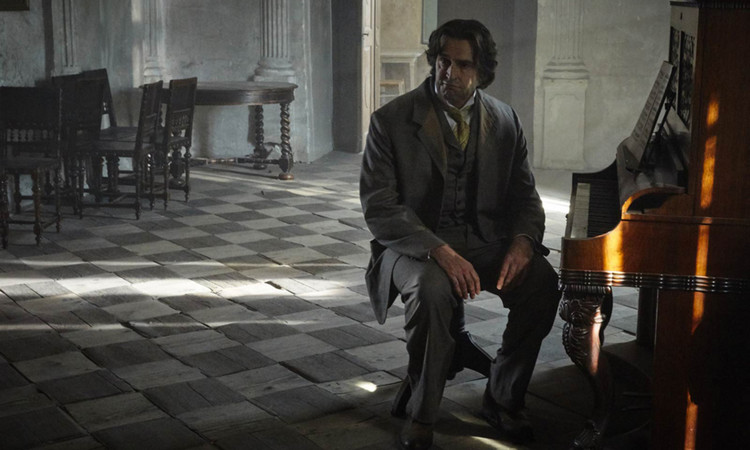Films > Film Reviews
The Happy Prince
Cinema City
30/06/18

Rupert Everett’s cinematic love-child is a bold and daring piece of film-making, offering an unromanticised take on a romantic idol. Bravely tackling Oscar Wilde’s years in exile following his release from Reading Gaol, we see the brightness and brilliance of the literary legend shot through with ruin and decay in his final moments.
10 years in the making, The Happy Prince is the passion project of passion projects. It is a love letter of sorts, but a brutal and unflinching love letter full of hardened truths and uncompromising snapshots at that. Nothing short of mesmerising, it is sumptuously shot and remains unpredictable and wildly audacious to the very last. You are taken from the heights of debauchery and hedonism, featuring many an absinthe glass and orgy, and cast down in time with Wilde’s self-doubt, destitution and illness.
Spear-heading it all is Everett with his dazzling performance that by turns dives from exuberance into pure melancholy and comes back up for air at swashbuckling. In this darkly comic decline of a cultural deity, he is unafraid to show Wilde in unflattering and at times even loathsome and self-pitying light. Whenever an actor writes, directs, produces and stars in a movie, there is the impulse within everyone to scream “Vanity project!” at the top of your lungs, but Everett’s delivery is painfully sincere and it would be quite hard to accuse him of self-indulgence when he spends the duration swaddled in a fat suit, accessorised by prosthetic chins and a bloody abscess.
Colin Morgan is fabulous and utterly transformed as the homme-fatale of the piece Lord Alfred Douglas, aka ‘Bosie’. Flamboyant, sharp as flint and erratic, he is as far from the BBC’s gangly hero Merlin as it’s possible to get. Another Colin, in the form of Firth, rocks up as Wilde’s long-term friend and confidante Reggie Turner and mixes in some much-needed self-abashing British humour equipped with a wry smile and quiver of the Mutton Chops.
The film treats time like putty and continually flashes between past, present, visions and dreams with a frequency that verges on the irreverent. Such a maverick approach to storytelling might seem like various drafts stacked on top of each other and barely cobbled together, but actually ends up giving it a rough-hewn texture that feels far more genuine and less contrived than a linear fall-from-grace yarn.
The Happy Prince was at times a little greedy with its misery and could have benefitted from more chalk with its proverbial cheese, either in the form of showing a few more flashes of Wilde’s life in high society or giving his wife Constance (Emily Watson) more air time to better punctuate the bleakness.
All in all, Everett’s endeavour advocates the importance of being earnest to your vision and never allowing your dreams to collapse in around you like some sad defunct gazebo. In various guises, Everett has courted Wilde for several decades, from acting in film adaptations of his plays An Ideal Husband and The Importance of Being Earnest, to playing the bon-vivant and great wit himself in David Hare’s play The Judas Kiss, and never has there been an actor better moulded to the role. The Happy Prince was a long time coming, but it was well worth the wait.
8/10